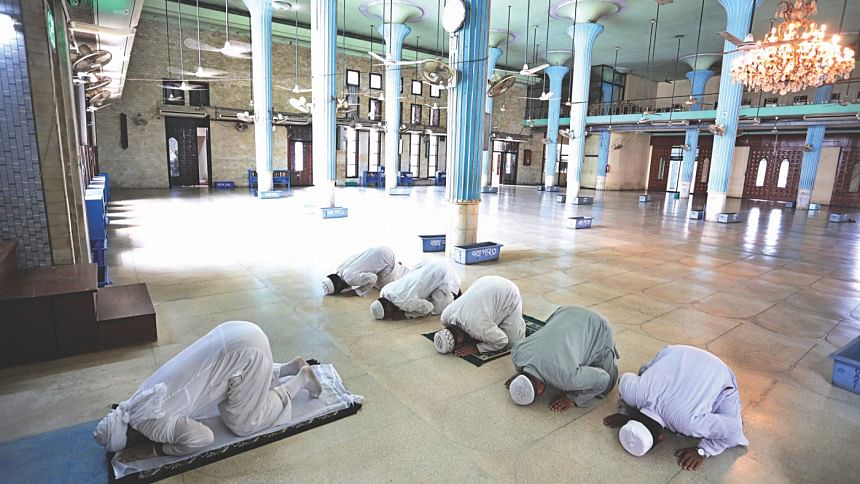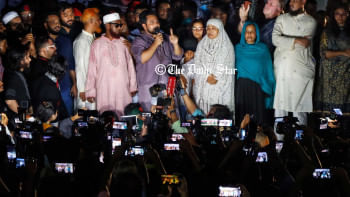Restrictions on prayers at mosques go

After around a month, the government yesterday lifted restrictions on people gathering at mosques, but said the mosque authorities must follow some health guidelines.
The religious affairs ministry has issued a notice in this regard.
Health experts, however, expressed concern over the decision and said the government was putting people's lives at risk as such congregations could lead to further transmission of novel coronavirus.
Following the Covid-19 outbreak in the country, the ministry on April 6 asked people to offer Zohr prayers at home instead of going to mosques to offer Juma prayers on Friday. The move was part of government's efforts to contain the spread of the virus.
In the notice, the ministry also said no one except those employed by mosques would be able to offer prayers there.
It said only five mosque staffers, including imam and muajjin, would be allowed to offer daily prayers at each mosque. For Juma prayers, a maximum of 10 mosque staffers would be allowed to do so.
Before the beginning of Ramadan, the religious affairs ministry in another notice on April 23 said only 10 people and two imams would be allowed to offer Tarawi prayers at each mosque during the month of fasting.
But yesterday, the ministry in its notice said it would allow people to offer prayers, including Tarabi, at mosques from today's Zohr prayers. But the mosque authorities need to follow certain conditions, including cleaning mosques with disinfectants before each prayer and not using carpets on the floor.
Besides, all devotees have to carry their own Jainamaz (prayer mats), while they would have to offer sunnah prayers at their homes.
People have to enter mosques wearing masks and the mosques must have arrangements at their entrances for washing hands with soap or using hand sanitiser, said the notice.
Devotees also must maintain a 3-foot distance from each other while offering prayers. Sick, elderly people and children will not be allowed to come to mosques.
No iftar or seheri will be allowed to be arranged inside mosques, the notice also said.
According to the notice, imams, khatibs and mosque management committee members will take steps to fulfill the above conditions. The local administration and the law enforcement agencies will take legal steps against anyone responsible in case those are not followed.
Talking to The Daily Star yesterday, former regional director (South East Asia) of World Health Organisation Prof Muzaherul Huq said the government earlier decided to reopen shopping malls and other markets, posing risks to people's lives.
"Today, the government made another mistake by deciding to allow people to offer prayers at mosques," he said. "Although the government said people will have to follow certain health guidelines, who will oversee that?" he questioned.
Visiting two mosques in the capital's Jigatola area last night, this correspondent saw people already thronging the mosques for offering Isa and Tarawi prayers. They were, however, not following any health guidelines.

 For all latest news, follow The Daily Star's Google News channel.
For all latest news, follow The Daily Star's Google News channel. 



Comments